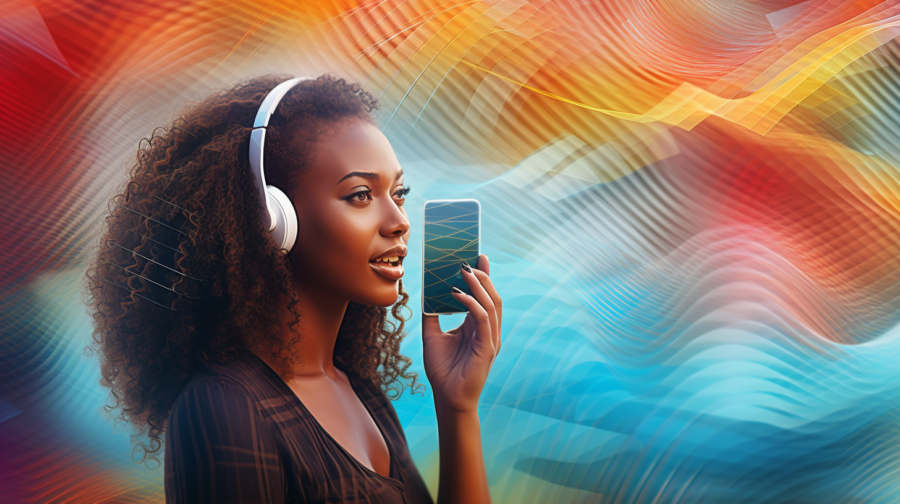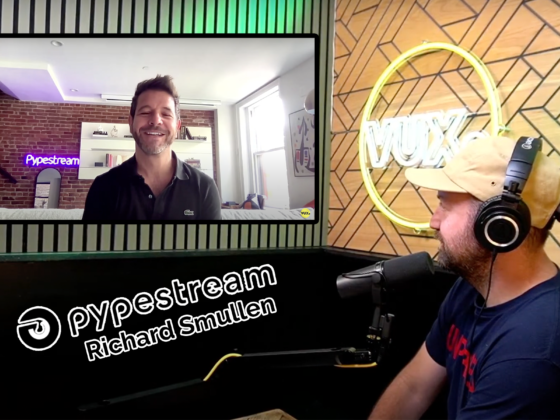
What does your voice reveal about you?
Probably more than you realise – it’s possible to detect clues about your health, background and emotions while you talk.
There are huge benefits to being able to communicate with machines via our most natural means, but with new technology always comes risks.
This article is based on Emily’s Conversations2 interview.
 Emily Uematsu Banzhaf, Content Designer at WillowTree, Conversation/VUI Designer, Professional Violinist is also an Open Voice Network Ambassador. Together they recently published the Ethical Guidelines for Voice Experiences.
Emily Uematsu Banzhaf, Content Designer at WillowTree, Conversation/VUI Designer, Professional Violinist is also an Open Voice Network Ambassador. Together they recently published the Ethical Guidelines for Voice Experiences.
You reveal more than you realise
We reveal so much more when we talk than most people realise. What you reveal is useful to those who want to know you better, for all sorts of reasons.
As Emily says,“personal information can be collected, like your name, your location, information about the device you’re using. Companies are collecting information even about your contacts right now. So unless you opt out of those, they collect that by default – depending on the company of course.”
When you’re giving away something valuable for free, that could potentially be used against you, then most people would probably prefer to be explicitly asked if it’s ok first.
Here’s the primary risk – most people don’t know what their voice reveals.
A healthy laugh
It’s possible to detect certain illnesses and diseases from a person’s voice. COVID has been successfully detected from voice, as has Alzheimers. Parkinsons might be too. Attempts are also being made to detect whether someone is intoxicated.
And it goes further. It’s also possible to detect your emotions and even your conversational speaking style. There’s speculation about how successful emotion detection is, but that only adds another risk into the mix – false positives and false negatives.
As with all data, it’s only used to fuel an assumption-engine. You feed data in one end, and you get assumptions out the other end. As you can imagine, making assumptions about people’s health or mood can be dangerous if done wrongly, or even worse if they don’t know about it.
What if the system detected that someone had a serious illness but didn’t reveal it, perhaps because that person’s data also showed that they’re not in the target income-bracket for marketing the necessary drugs to combat that illness?
Giving people a choice
Perhaps the most prominent issue here is consent.
We’re talking about the ability to detect illness from someone’s voice alone, at any time of day, possibly anywhere, and without an expert human in the loop. That’s unbelievable.
Just think how many lives could be saved!
Expert health care is expensive. An AI model that only needs a smartphone-quality microphone to detect illnesses could quite easily be deployed anywhere, and cheaply, to help even remote people, whether they’re in a warzone, an Antarctic research base, the Amazon rainforest or on the moon. Illnesses would be detected quicker than waiting for a doctor visit (it could possibly be detected as soon as the issue appears), so the treatment could begin sooner. You can see why people might say yes to that.
How you feel about that is up to you. This technology is here now. Don’t think that only the most modern voice activated new devices are capable of detecting specific clues from your voice. There’s 16.8 billion smartphones in the world now. Those are internet-connected computers that use voice as an input. This data may already have been collected from you, for better or worse.
Thanks Emily Uematsu Banzhaf! Follow her, and if you want to know more about the ethical implications of voice tech head over to Open Voice Network.




